education

Shermer and Henderson discuss: hindsight bias • genes, environment, luck, contingency • foster care • incarceration rates • marriage, divorce, childhood outcomes • poverty, welfare programs, and social safety nets • the young male syndrome • alcohol, drugs, depression • luxury beliefs of educated elites • wealthy but unstable homes vs. low-income but stable homes • inequality • Henderon’s experience in the military, at Yale and Cambridge • the Warrior-Scholar Project.
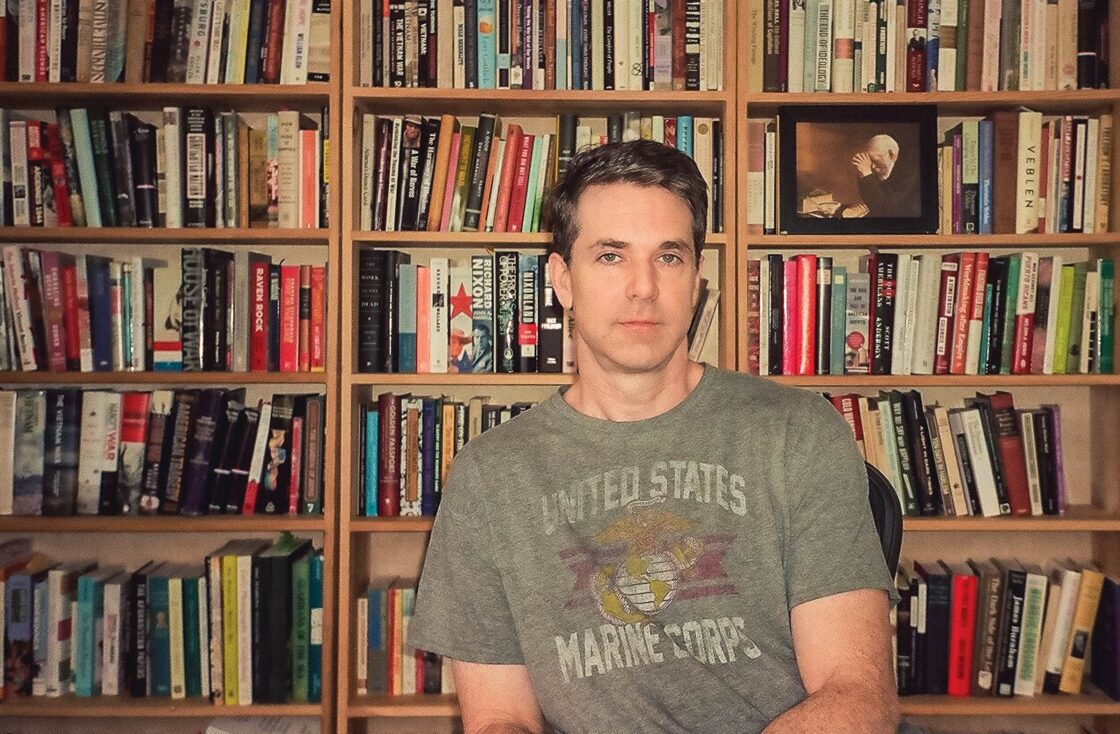
A pediatric neurologist at Boston Children’s Hospital diagnosed my son, Misha, with autism spectrum disorder at age three. At Massachusetts General Hospital, another pediatric neurologist answered my call for a second opinion only to rebuff my hope for a different one. “I did not find him to be very receptive to testing,” the expert sighed. […]

The practice of discussing educational testing in the same sentence with the term “war” is not necessarily new or original.1 What may be new to readers, however, is to characterize current debates involving educational testing as involving a war against: (1) accurate perceptions about the way things really are (reality), and (2) sound judgment in […]

Institutionalized experiments take a while to fail so fully as to be discredited. The 1917 Russian Revolution put its people “seventy years on the road to nowhere,” three generations of poverty, fear, and violence (as the news media, quoting protesters, declared in the regime’s last year).1 Poles who survived communism dismissed it as something that […]
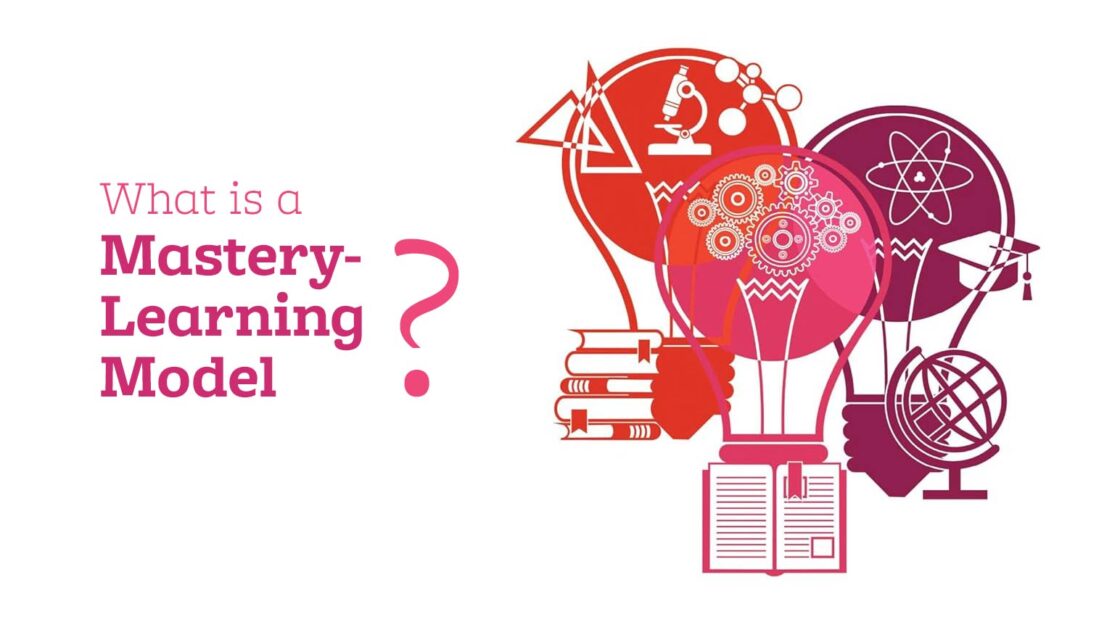
Everyone knows the problems with American education; there is no point in rehashing them. Identifying the source of those problems, however, is essential to any meaningful reform. At every level, educational innovation is choked off by bureaucratic administrators who benefit from the current structure’s inefficiencies. Let’s be clear, there is no grand administrative conspiracy— both […]
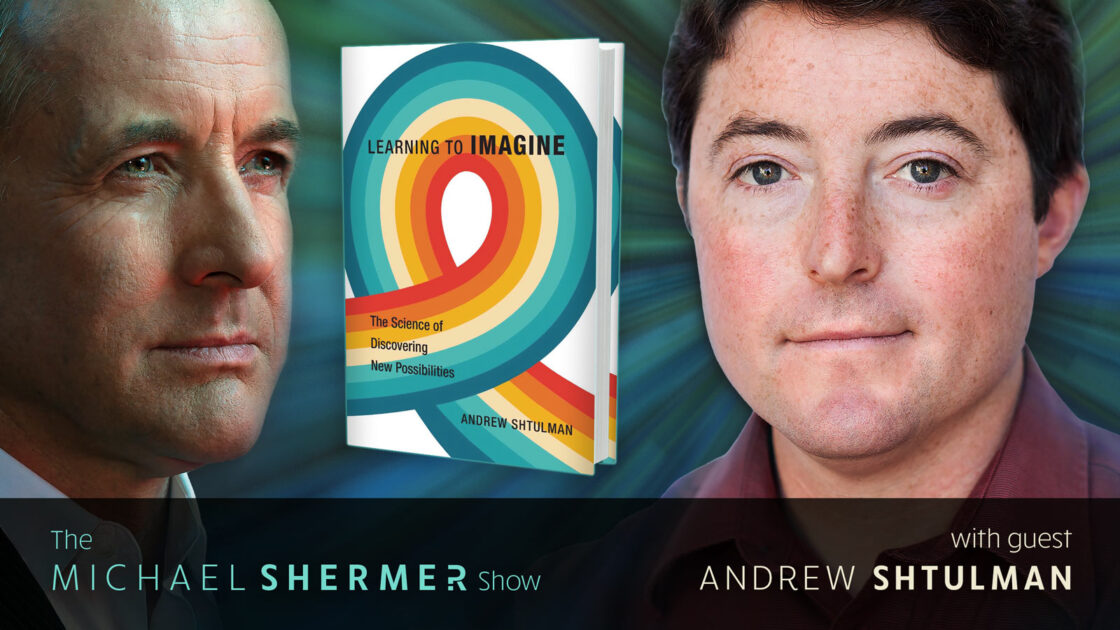
Shermer and Shtulman discuss: • imagination: the capacity to generate alternatives to reality • imagination’s purpose and structure • anomalies and counterfactuals • principles: scientific, mathematical, ethical • models: pretense, fiction, religion • development of imagination • how children understand causality • purpose of pretend play • theory of mind • religious practices • AI and creativity • The Beatles • Montessori education.

Shermer and Deaton discuss: the science of science is economics • winning a Nobel Prize • what economists do, and how they determine causality • Ludwig von Mises, Friedrich Hayek, Milton Friedman, Ayn Rand • why a college education matters • meritocracy and “Just World” theory • minimum wage • healthcare • poverty • inequality • opioid crisis, alcoholism, suicide • inflation and interest rates • modern monetary theory • think tanks.
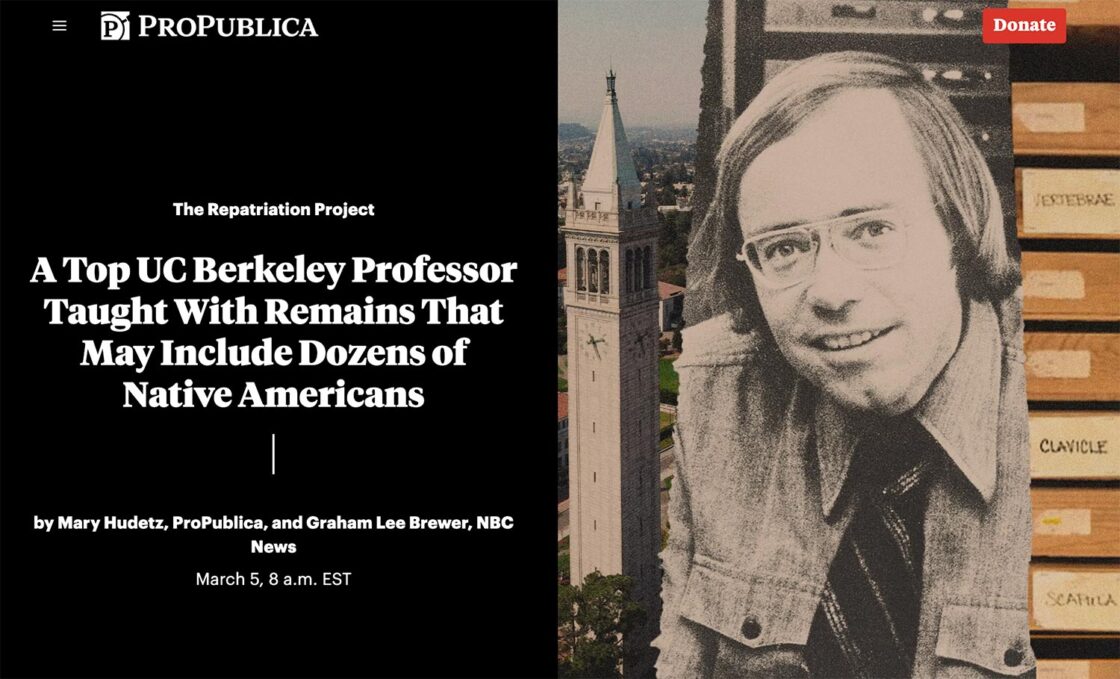
Disputes rage across campuses and the courts concerning the location and treatment of human remains from other times, places, and cultures. How do we balance the rights of protesting ethnic groups against the scientific need to study and teach medicine, ancestry, and evolution? Disposition needs to be based on the preponderance of evidence — scientific versus affiliation to modern-day claimants.
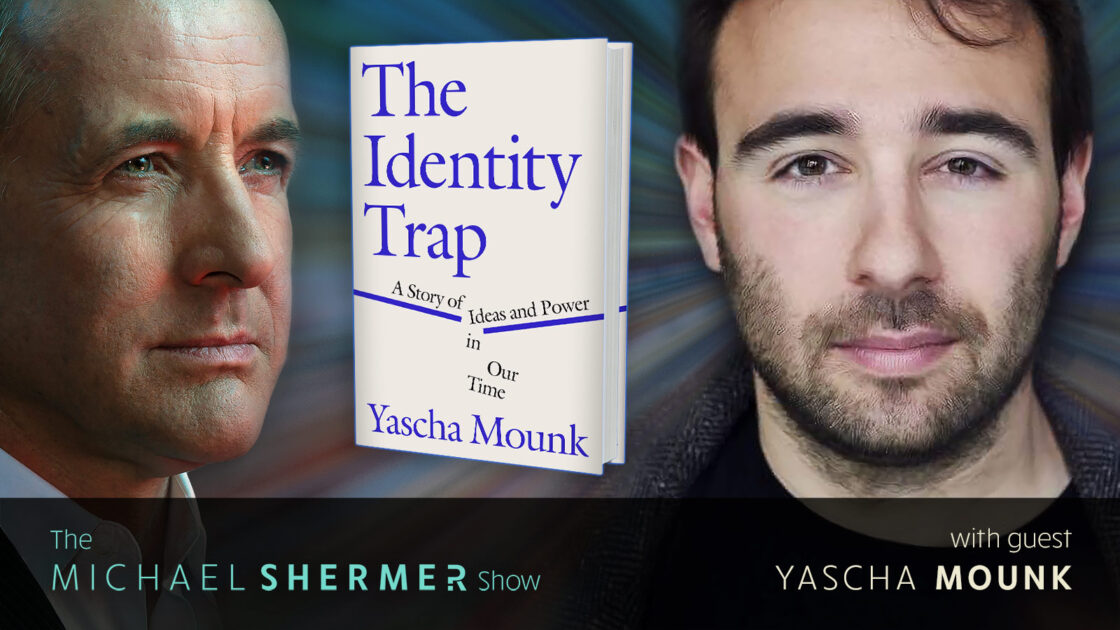
Shermer and Mounk discuss: the identity synthesis/trap • Israel, Hamas, Palestine • why students & student groups are pro-Palestinian and anti-Israel • the rise of anti-Semitism in recent years • proximate/ultimate causes of anti-Semitism • the rejection of the civil rights movement and the rise of critical race theory • overt racism vs. systemic racism • the problem of woke ideology • Trump and the 2024 election • the possibility of another Civil War • What should we do personally…

Concrete educational reforms cannot begin until the greatest myth in teaching is dispelled: educational reform will not be created out of sympathy for teachers. Instead, reform must be built upon new ideas presented by teachers. Teachers themselves need to stop bleeding and start leading. And the place to start is by dispelling existing myths.
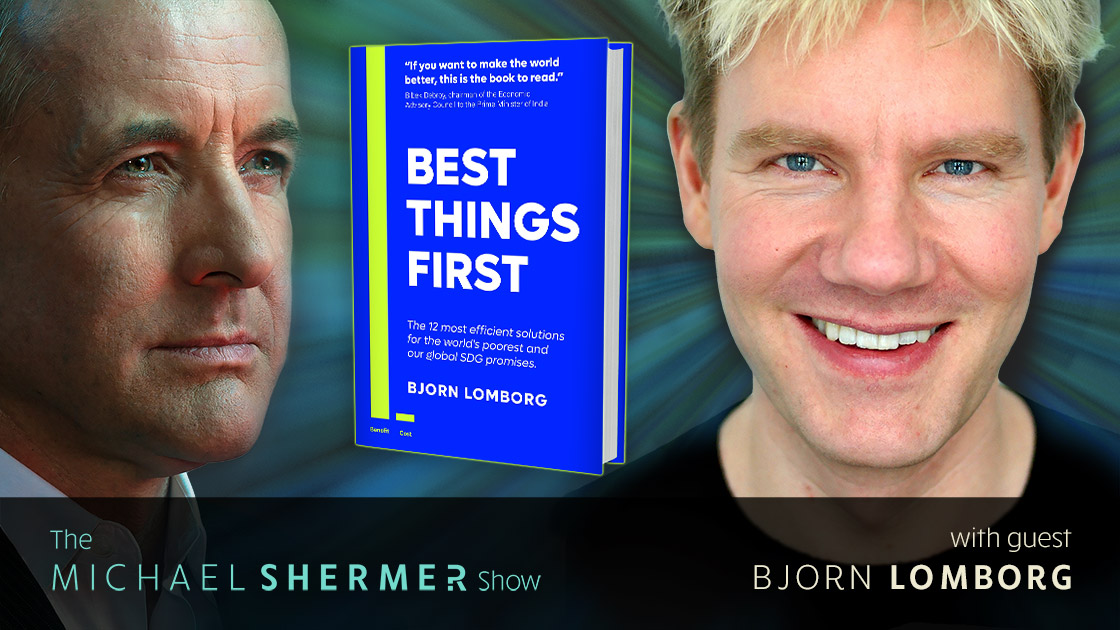
Shermer and Lomborg discuss: perfect solutions vs. practical trade-offs • benefit-cost analysis • time horizons and discounting the future • the value of a statistical life • saving the environment, the poor, the diseased • the millennium development goals • the sustainable development goals • tuberculosis • education • maternal and newborn health • agricultural R&D (more and cheaper food) • malaria • land tenure security • nutrition • chronic diseases • childhood immunization • corruption • highly skilled migration.

Media coverage often claims scholastic admissions tests (e.g., SAT, GRE) are inaccurate, inequitable, and ineffective because: (1) any racial/ethnic differences are caused by test bias; (2) tests don’t predict anything important; (3) tests merely reflect wealth not acquired skills or academic potential; so (4) admissions would be fairer without them. This article presents mainstream scientific evidence that each claim is false. Since admission test scores are the most resistant to bias, getting rid of them would make admissions less fair.

Shermer and Mandel discuss: the problem of woke ideology • anecdotes vs. data about woke actions and intentions • sex and gender • woke medicine • transgender affirming care • government vs. private responses to social movements and ideas • Trump, DeSantis, Liz Cheney, the Lincoln Project, and other GOP issues • abortion: pro-Choice or pro-Life? • support for children: government or private? • What is “the left” and how does it differ from liberalism, classical liberalism, and libertarianism? •…
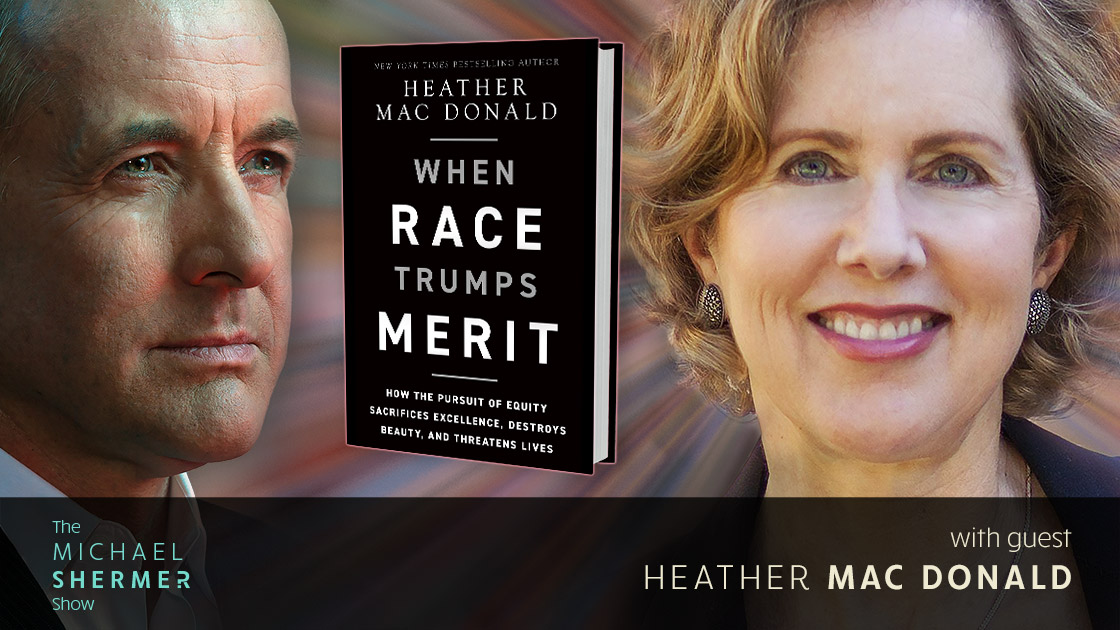
Shermer and Mac Donald discuss: race as America’s original sin • civil rights • equality vs. equity • disparate impact • overt racism vs. systemic racism • why Blacks make less money, own fewer and lower quality homes, work in less prestigious jobs, hold fewer seats in the Senate and House of Representatives, run fewer Fortune 500 companies • race and science, medicine, classical music, opera, Juilliard, Swan Lake, museums, and the law • crime and mass shootings • George…
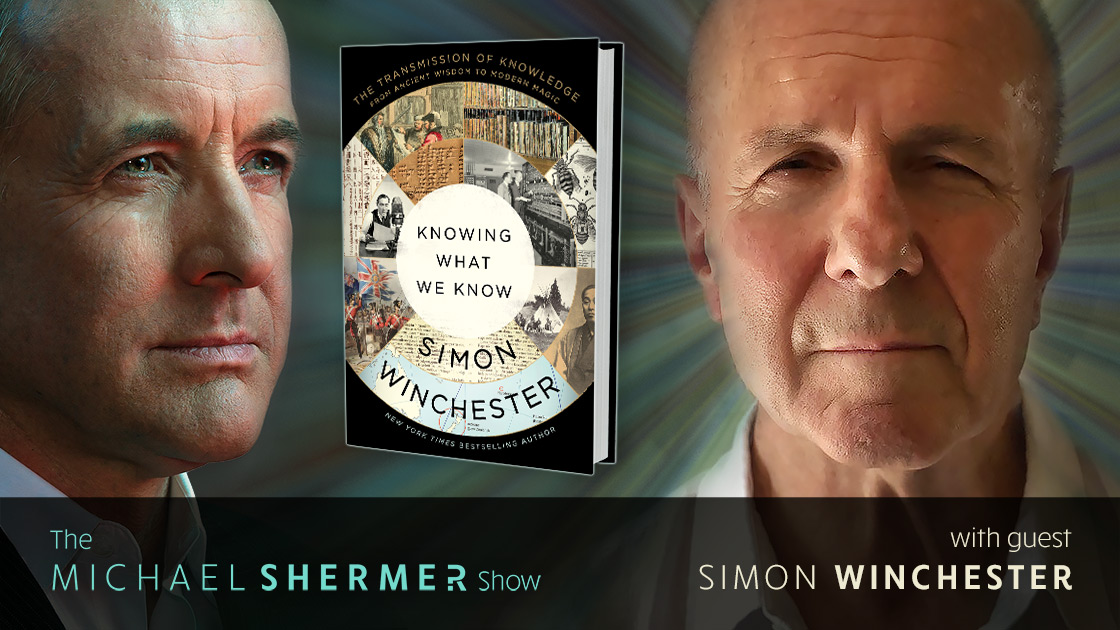
Shermer and Winchester discuss: how to become a professional writer • ChatGPT, GPT-4, and AI • knowledge as justified true belief • What is truth? • Are we living in a post-truth world of fake news and alternative facts? • education, past and present • books and the printing press • the history and future of encyclopedias • museums: repatriating objects taken during colonialism • print and broadcast journalism • internet and knowledge.
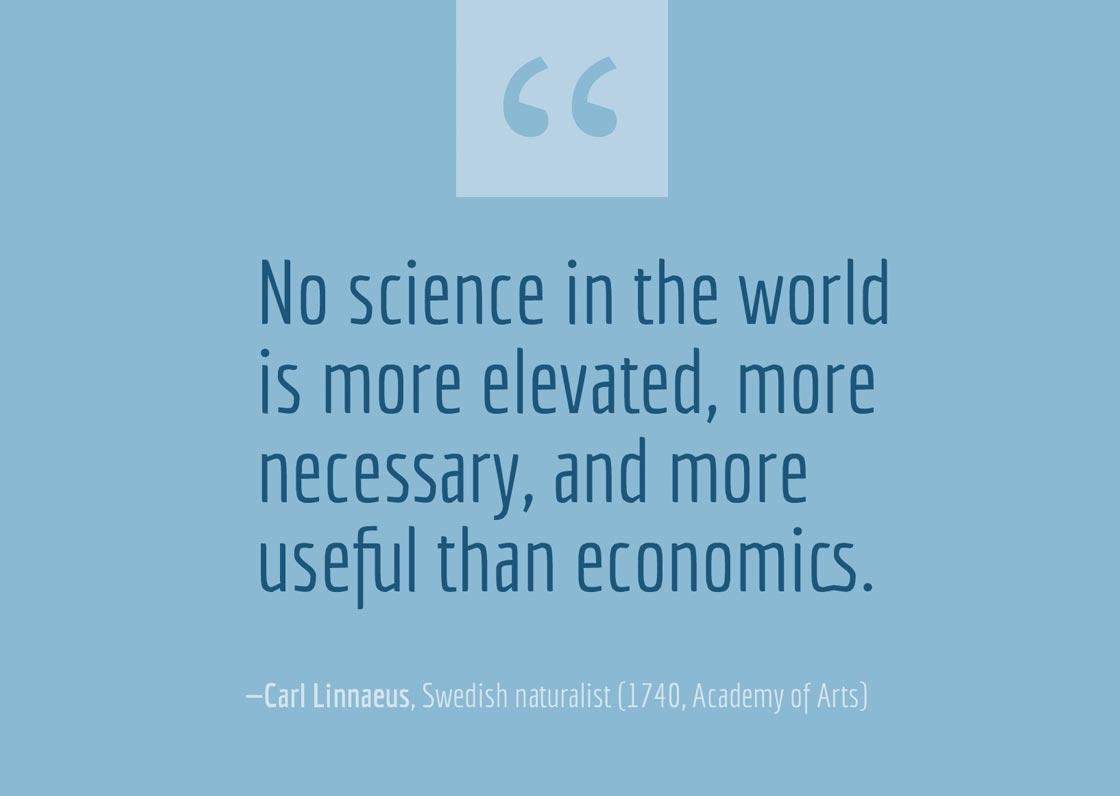
What is money, what is it based on without a gold standard, and can cryptocurrency ever replace it? Why are young people so attracted to democratic socialism, and is there a better alternative? Should valuable goods and services such as college education, medical services, and transportation be made available to the public for free? What is the secret to the success of capitalist nations? Do economists offer any solution to the global warming threat? “America’s Economist,” Mark Skousen, helps make…

Science and religion present two paradoxes in the United States. On the one hand, the U.S. is the undisputed world leader in science. Yet, the U.S. is also the wealthy industrialized country with the most widespread skepticism about science, most notably regarding climate change, vaccines, and evolution. How can those two seemingly incompatible facts be reconciled? This article solves this paradox.
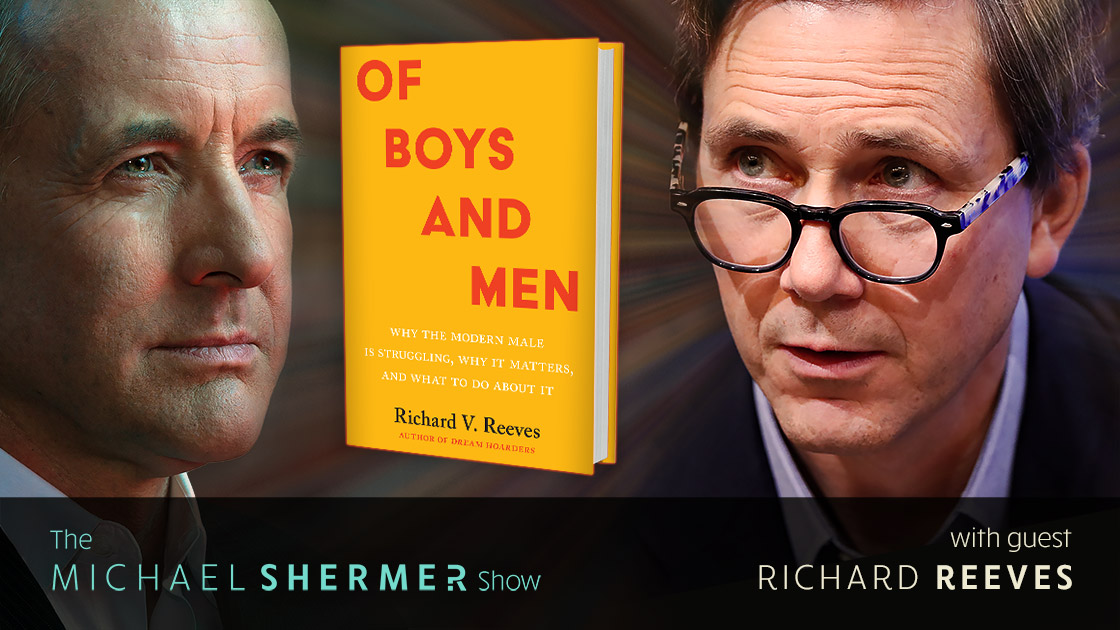
Shermer and Reeves discuss: comparison method: U.S. vs. other WERID countries • education • work/labor market • family • marriage • Divorce/custody/spousal support/child support • intersectionality I: Black boys and men vs. White boys and men • intersectionality II: poor boys and men vs. middle class/upper class boys and men • What is a man? (nature and nurture in the making of a male) • what the political left gets wrong about boys and men • what the political right…
Education reform researcher and advocate Chris Edwards explains the problem with the U.S. public education system and considers possible solutions. PLUS: Michael Shermer speaks with Christopher Blattman about his new book Why We Fight: The Roots of War and the Paths to Peace.
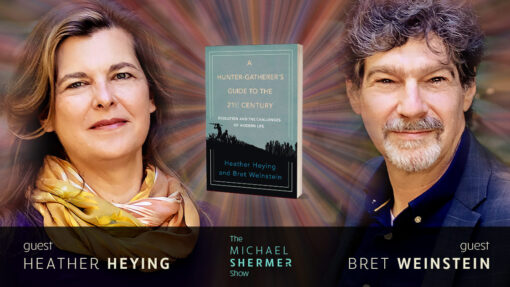
We are living through the most prosperous age in all of human history, yet people are more listless, divided and miserable than ever. In episode 209 Michael Shermer speaks with Heather Heying and Bret Weinstein about evolution and the challenges of modern life, based on their new book A Hunter-Gatherer’s Guide to the 21st Century.
NEXT →





























